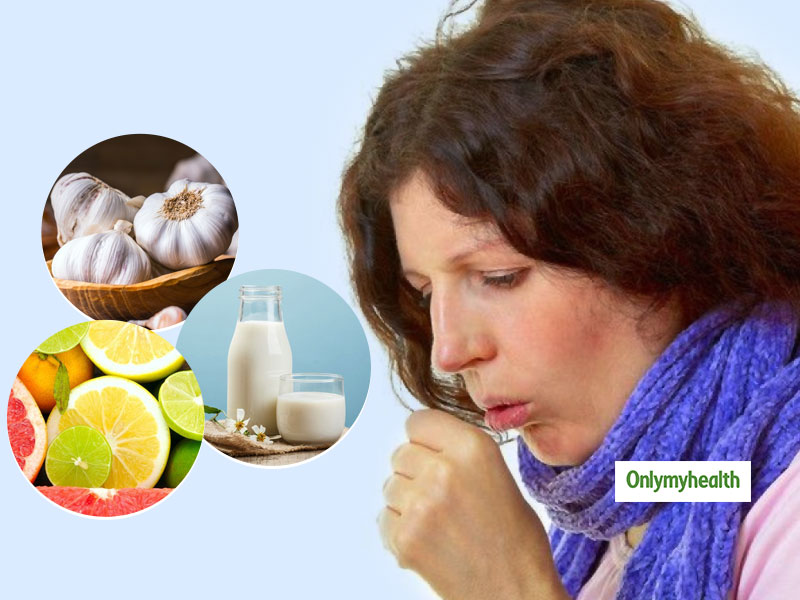
Tuberculosis (TB) is a serious infectious disease caused by the bacterium Mycobacterium tuberculosis. While medical treatment is essential for managing TB, maintaining a healthy diet can significantly support the body's immune system and overall well-being during the recovery process.
Table of Content:-
We spoke to our expert Dr Shani Mann, Respiratory Medicine, Sharda Hospital and here's what you should eat and avoid to complement your TB treatment:
What Should You Eat
1. Protein-rich Foods
Protein is crucial for tissue repair and immune function. Include sources such as fish, poultry, eggs, dairy products, legumes, almonds, and seeds in your diet to ensure an adequate intake of protein.
2. Fruits and Vegetables
These provide essential vitamins, minerals, and antioxidants necessary for a robust immune system. Aim for a variety of colourful fruits and vegetables to obtain a wide range of nutrients.

Also Read: Nurturing Mental Health: Strategies for Emotional Well-being During Ramadan Fasting
3. Whole Grains
Opt for whole grains like oats, brown rice, quinoa, and whole wheat bread. These grains are rich in fibre, vitamins, and minerals, promoting overall health and vitality.
4. Healthy Fats
Incorporate foods rich in healthy fats such as avocados, almonds, seeds, and olive oil into your diet. These fats are essential for cell structure maintenance and nutrient absorption.
5. Probiotic Foods
Foods containing beneficial bacteria, such as yoghurt, kefir, sauerkraut, and kimchi, support gut health and boost immunity.
6. Hydration
Drink plenty of fluids, especially water, throughout the day to stay hydrated and support the body's functions.

Also Read: Expert Shares Benefits of Flaxseeds Powder to Balance Hormones
What Not To Eat
1. Processed Foods and Sugary Snacks
Limit your intake of processed foods and sugary snacks and beverages as they provide empty calories and can weaken the immune system.
2. Trans Fats
Avoid processed snacks, commercial baked goods, and fried foods, which are high in trans fats. These fats may compromise immune function and cause inflammation.
3. Alcohol
Excessive alcohol consumption can impair immune function and reduce the effectiveness of medications. Limit alcohol intake during TB treatment.
4. Caffeine and Stimulants
While a small amount of caffeine is generally acceptable, excessive consumption can have adverse effects on health and disrupt sleep patterns. Minimize caffeine and stimulant intake, especially before bedtime.
5. High-Sodium Foods
Reduce your intake of foods high in salt, as they can lead to water retention and exacerbate TB symptoms such as coughing and breathing difficulties. Opt for fewer processed and fatty foods to lower your sodium intake.
A Final Word
A well-balanced diet rich in protein, fruits, vegetables, whole grains, healthy fats, and probiotic foods can provide essential nutrients to support the immune system and aid in the recovery from tuberculosis. Conversely, limiting consumption of processed foods, trans fats, alcohol, caffeine, and high-sodium foods can help maintain overall health and enhance the effectiveness of TB treatment. Always consult with a healthcare professional or registered dietitian for personalised dietary recommendations tailored to your specific needs and medical condition.
Also watch this video
How we keep this article up to date:
We work with experts and keep a close eye on the latest in health and wellness. Whenever there is a new research or helpful information, we update our articles with accurate and useful advice.
Current Version